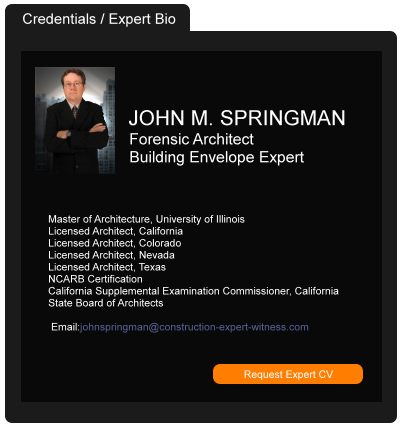Jury Trials: A COVID Update
July 18, 2022 —
Joshua Lane - Ahlers Cressman & Sleight PLLCJURY TRIALS. Budd v. Kaiser Gypsum Co., Inc., — Wn. App. 2d –, 505 P.3d 120 (Wash. Ct. App. 2022). (1) Courts must ensure that juries are randomly selected to provide a fair and impartial jury. (2) While the Sixth and Fourteenth Amendments prohibit the systematic exclusion of distinctive groups from jury pools, Washington Courts’ COVID-19 policy to excuse people who were ages 60 and older and did not wish to report for duty was not a “systematic” exclusion.
Raymond Budd developed mesothelioma after working with a drywall product called “joint compound” from 1962 to 1972. He sued Kaiser Gypsum Company, Inc. and others for damages, contending that the company’s joint compound caused his illness. A jury returned a verdict in Budd’s favor and awarded him nearly $13.5 million. Kaiser appeals, claiming (1) insufficient randomness in the jury-selection process, (2) erroneous transcription of expert testimony, (3) lack of proximate causation, (4) lack of medical causation, (5) an improper jury instruction on defective design, (6) improper exclusion of sexual battery and marital discord evidence, (7) improper admission of post-exposure evidence, (8) improper exclusion of regulatory provisions, and (9) a failure to link its product to Budd’s disease. The Court of Appeals, Division 1, affirmed the verdict in favor of Budd.
Read the court decisionRead the full story...Reprinted courtesy of
Joshua Lane, Ahlers Cressman & Sleight PLLCMr. Lane may be contacted at
joshua.lane@acslawyers.com
Colorado Supreme Court Weighs in on Timeliness of Claims Against Subcontractors in Construction Defect Actions
March 16, 2017 —
Jean Meyer - Colorado Construction LitigationOn February 27, 2017, the Colorado Supreme Court announced its decision in the Goodman v. Heritage Builders, No. 16SA193, 2017 CO 13 (Colo. February 27, 2017) case. In ten short pages, the Colorado Supreme Court completely reshuffled Colorado construction law with respect to application of the statutes of limitation and repose on third-party claims in construction defect cases. Specifically, the Colorado Supreme Court overruled a series of earlier Court of Appeals' decisions that found C.R.S. § 13-80-104(1)(b)(II) (“104(1)(b)(II)”) had no effect on the six-year statute of repose. For context, 104(1)(b)(II) permitted third-party actions for indemnity and contribution to toll until ninety days after the claims in the underlying action were resolved by settlement or judgment. In the construction context, 104(1)(b)(II) was intended to allow a general contractor’s claims against liable subcontractors to toll for the statutorily defined period. This allowed the general contractor to first focus its attention on defending the claims against and thereafter to pursue its claims against the subcontractors.
However, beginning in 2008, in the Thermo Dev., Inc. v. Cent. Masonry Corp., 195 P.3d 1166 (Colo. App. 2008) case, the Colorado Court of Appeals began chipping away at the force of 104(1)(b)(II). This trend continued in the Shaw Constr., LLC v. United Builder Servs., Inc., 2012 COA 24, 296 P.3d 145 decision, the Sierra Pac. Indus., v. Bradbury, 2016 COA 132, _ P.3d_ decision, and culminating in the Sopris Lodging, LLC v. Schofield Excavation, Inc., 2016 COA 158, reh'g denied (Nov. 23, 2016) decision. Effectively, in these decisions, the Colorado Court of Appeals determined that third-party claims could not be brought beyond Colorado’s six-year statute of repose, regardless if they were brought within the ninety day tolling provision set forth in 104(1)(b)(II).
Read the court decisionRead the full story...Reprinted courtesy of
Jean Meyer, Higgins, Hopkins, McLain & Roswell, LLCMr. Meyer may be contacted at
meyer@hhmrlaw.com
Rio Olympics Work Was a Mess and Then Something Curious Happened
April 06, 2016 —
Jonathan Levin, Tariq Panja & David Biller – BloombergIn early 2014, a senior Olympic Committee official returned from a trip to Rio de Janeiro and declared Brazil’s preparations for the Summer Games to be the worst he’d ever seen. In the two years since, a crippling recession set in, dozens of construction executives were ensnared in a nationwide corruption scandal and the president has been pushed to the brink of impeachment.
And the preparations?
They’re basically fine now, actually. In what is emerging as a rare bright spot in a country buffeted by crisis on all sides, the organizing committee is saying that more than 95 percent of the venues are complete some four months ahead of the opening ceremony and, what’s more, data shows spending has largely remained under control.
Reprinted courtesy of Bloomberg reporters
Jonathan Levin,
Tariq Pania and
David Biller Read the court decisionRead the full story...Reprinted courtesy of
Some Construction Contract Basics- Necessities and Pitfalls
January 03, 2022 —
Christopher G. Hill - Construction Law MusingsRecently, I’ve been on an “advising” kick here at Construction Law Musings. My last two posts have been about communication and trusting your gut when it comes to a smooth construction project. This post will be the third in the trilogy (and who knows maybe I’ll have a 4th and 5th like the Hitchhiker’s Guide to the Galaxy “trilogy”).
While all construction contractors should use their communication skills and instincts to assure a smooth and hopefully profitable project, all of the gut following and great communication will not help you if your contract is not up to snuff. In the spirit of giving you a few basics things to look at, here’s my list of three basics that you need in your contract and a three things to be on the lookout for in others’ contracts.
First, the good stuff that needs to be there:
- Attorney Fees Clause– without it, a Virginia court (and most other courts) will not award you a judgment for any attorney fees spent to protect your rights.
- Dispute Resolution– whether the specified resolution is through the litigation process, ADR or some combination, such a clause or paragraph will only help define the parameters of what happens with a claim.
- Detailed scope of work– Without the proper detail in the scope of work, the parties cannot properly set expectations and know what happens when things change.
Read the court decisionRead the full story...Reprinted courtesy of
The Law Office of Christopher G. HillMr. Hill may be contacted at
chrisghill@constructionlawva.com
Broker's Motion for Summary Judgment on Negligence Claim Denied
July 30, 2018 —
Tred R. Eyerly - Insurance Law HawaiiAfter being sued for negligence for failing to secure proper coverage, the broker was unsuccessful in seeking dismissal by way of summary judgment. Liverman Metal Recycling, Inc. v. Arthur J. Gallagher & Co., 2018 U.S. Dist. LEXIS 87957 (E.D. N.C. May 25, 2018).
Plaintiffs were two companies, Empire and Liverman, that processed scrap metal. They were in the process of merging under a management plan by which Empire would acquire Liverman. As part of the plan, Empire's employees were moved on to Liverman's payroll processing system. Concurrently, Liverman renewed its workmen's compensation policy. Defendant Arthur J. Gallagher & Company, an insurance broker, handled the renewal with the insurer, Bridgefield Insurance Company.
Read the court decisionRead the full story...Reprinted courtesy of
Tred R. Eyerly, Damon Key Leong Kupchak HastertMr. Eyerly may be contacted at
te@hawaiilawyer.com
Congratulations to BWB&O’s Newport Beach Team for Prevailing on a Highly Contested Motion to Quash!
January 08, 2024 —
Dolores Montoya - Bremer Whyte Brown & O'Meara LLPCongratulations to Newport Partners Tyler Offenhauser and Jonathan Cothran, and Associate Anisha Kohli, who recently prevailed on behalf of BWB&O’s client before the Orange County Superior Court on a highly contested Motion to Quash Service based on Plaintiff’s failure to timely file and serve a DOE Amendment, naming our client.
BWB&O’s client was the owner of a building where Plaintiff, a licensed electrician, was electrocuted while performing an upgrade to the building’s electrical infrastructure. Plaintiff’s original lawsuit named only the building’s tenant, who was also represented by BWB&O. BWB&O was successful earlier this year on a Motion for Summary Judgment under the Privette Doctrine and won judgment on behalf of the client/tenant. While that MSJ was pending, Plaintiff surreptitiously added the building’s owner to the suit with a DOE Amendment, after several months earlier learning the owner and then tenant were entities operated by the same individual. However, Plaintiff never informed counsel or any other party of the filing. Moreover, after the MSJ was granted, Plaintiff then waited several more months to serve the building’s owner.
Read the court decisionRead the full story...Reprinted courtesy of
Dolores Montoya, Bremer Whyte Brown & O'Meara LLP
Insurers Refuse Indemnification of Subcontractors in Construction Defect Suit
November 13, 2013 —
CDJ STAFFSMG Stone Co. Inc. and J. Colavin & Son Inc. were hired by Webcor Construction LP to install stone floor tiles at the Ritz-Carlton residences at the L.A. Live complex in Los Angeles. But the tiles began to crack even before installation was finished. The building management had all the tiles ripped out and replaced, although only 10% of the tiles were defective. The building management then claimed Webcor owed them $40 million, but settled for $8 million.
$7 million of that claim was paid by Steadfast Insurance Co., with the remaining $1 million paid by Webcor. The two other insurers involved, American Home and The Insurance Company of the State of Pennsylvania, are attempting to deflect Webcor or Steadfast from making claims against them.
Both insurers claim no obligation to indemnify the contractor or subcontractors as the claims do not involved “property damage,” as defined in the policy.
Read the court decisionRead the full story...Reprinted courtesy of
State of Texas’ Claims Time Barred by 1982 Nuclear Waste Policy Act
June 13, 2018 —
Anthony B. Cavender - Gravel2Gavel Construction & Real Estate Law Blog On June 1, the U.S. Court of Appeals for the Fifth Circuit decided the case of State of Texas v. U.S., et al. The Court of Appeals held that the petition for mandamus filed by the State of Texas essentially seeking to compel the Nuclear Regulatory Commission (NRC) to establish a schedule for the operation of the Yucca Mountain, NV nuclear waste depository was untimely filed. The depository is very controversial in Nevada, and as a consequence, none of the many deadlines established by Congress have been met.
Read the court decisionRead the full story...Reprinted courtesy of
Anthony B. Cavender, Pillsbury Winthrop Shaw Pittman LLPMr. Cavender may be contacted at
anthony.cavender@pillsburylaw.com


































































